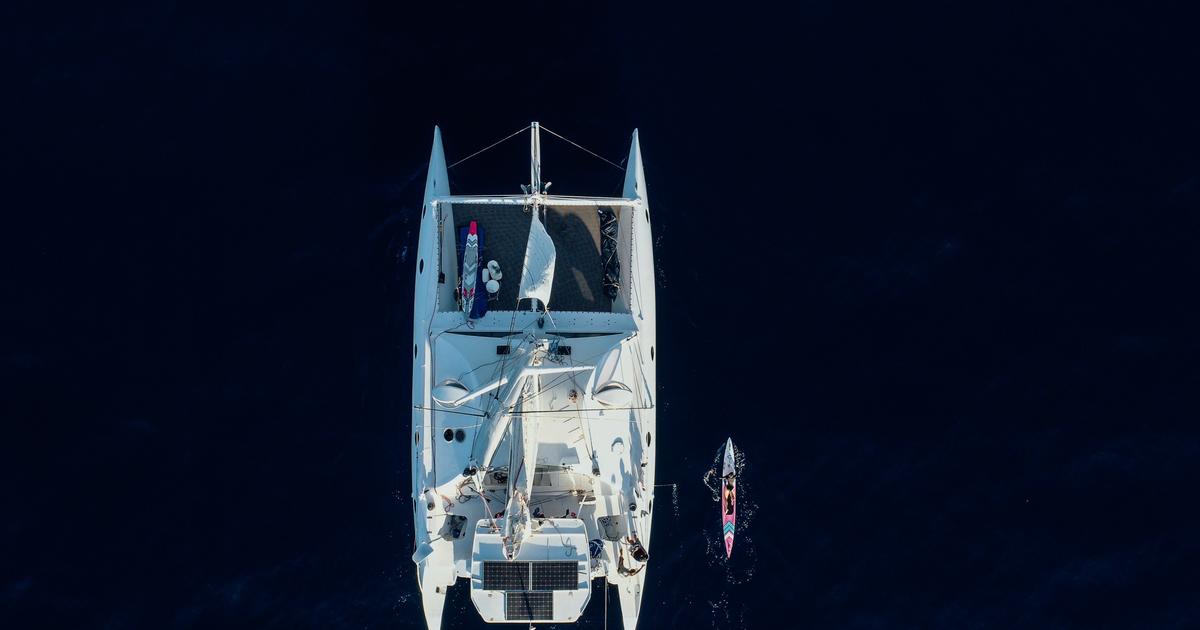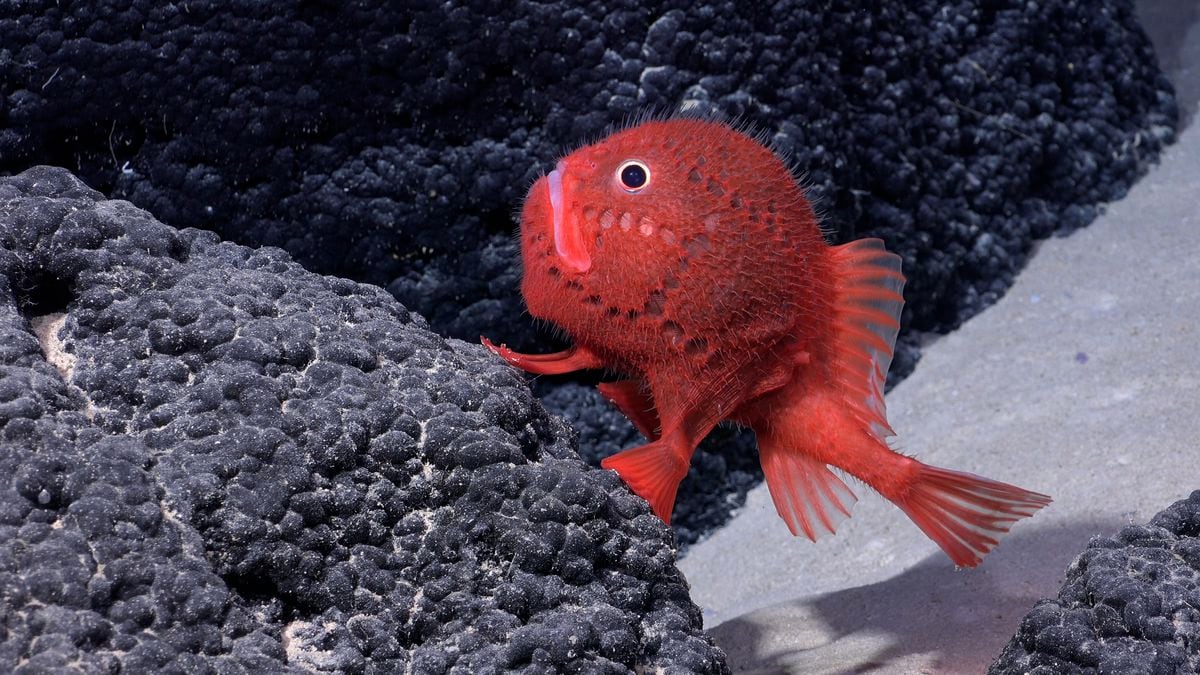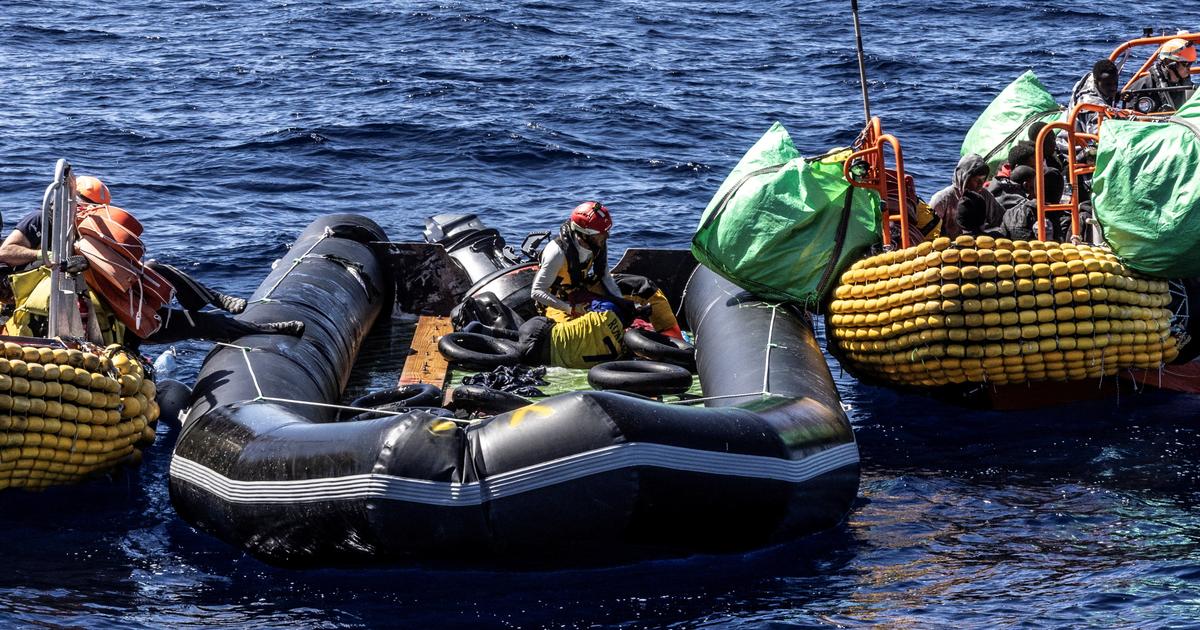They left Peru and arrive in French Polynesia in a few days.
By the sheer force of their arms, these six waterwomen will have traveled more than 8,000 kilometers in prone paddle, a water sport practiced on a narrow board at water level, when they arrive in Moorea.
Unlike the paddle on which you stand with a paddle to move forward, this discipline is practiced on your knees or lying down.
Stéphanie, Emmanuelle, Alexandra, Margot, Marie and Itziar combine six of them with several world championship titles.
Seasoned athletes, they specialize in rescue (coastal or sports) and this is not their first expedition.
Before setting off, they made two test crossings to prepare, from Bordeaux to Biarritz or even from Monaco to Athens.
Day and night
For three months, the rowers take turns hour by hour to reach the end of the Cap Optimist expedition, a crossing of the Pacific that began in January.
Each day, they row four hours each, the equivalent of a daily half-marathon.
The idea is to take turns day and night by adapting to the vagaries of the waters they cross.
In their logbook, they recount their daily life on board the boat which serves as their "base", the Noumène.
And explain, for example, that they decided not to row at sunset and sunrise *, because "at these times, sharks hunt and can have predatory behavior."
At night, all of our senses are biased, especially sight.
It is very distressing to be in a hostile environment and to see nothing.
Margot Calvet, one of the rowers of the Cap Optimist expedition
Added to this is increased supervision of teammates, provided by the rowers themselves, meaning more hours without rest.
Margot Calvet, who cut her teeth in the French prone paddle team, feared rowing at night: “All our senses are biased, especially sight.
It is very distressing to be in a hostile environment and to see nothing.
Through mental preparation, I was able to calm myself down with breathing exercises.
In the end, we manage to appreciate the starry skies and the silence.
The hardest thing for me is waking up at night, getting up and putting on the suit.
Once this step is done, rowing becomes automatic”.
The six waterwomen set off from the bay of Lima in Peru, a departure in solidarity with children in remission from cancer.
Jérémie Gabrien for Cap Optimist
“Create your own challenge”
An automation motivated by the desire to move the lines for sick children.
It is Stéphanie Geyer Barneix, world champion in coastal rescue, who is behind this expedition.
The goal, to surpass herself and raise funds for Hope Team East, an association she founded in 2015 and which supports people undergoing cancer treatment.
“Our goal is to be able to give everyone the opportunity, regardless of level or physical ability, to surpass themselves by creating their own challenge”.
Supporting sick people to live better thanks to a sports activity: a fight that Stéphanie knows well, herself a survivor of four breast cancers.
This time, the idea is to support a new project: supporting children through sport during and after cancer treatment.
*On the advice of the APECS association, which acts in favor of the protection of sharks and rays, and those of Nicolas Buray, specialist in sharks in French Polynesia.



/cloudfront-eu-central-1.images.arcpublishing.com/prisa/DBT2OEOLXBGZTLYKDBM2FWSJNM.jpg)





